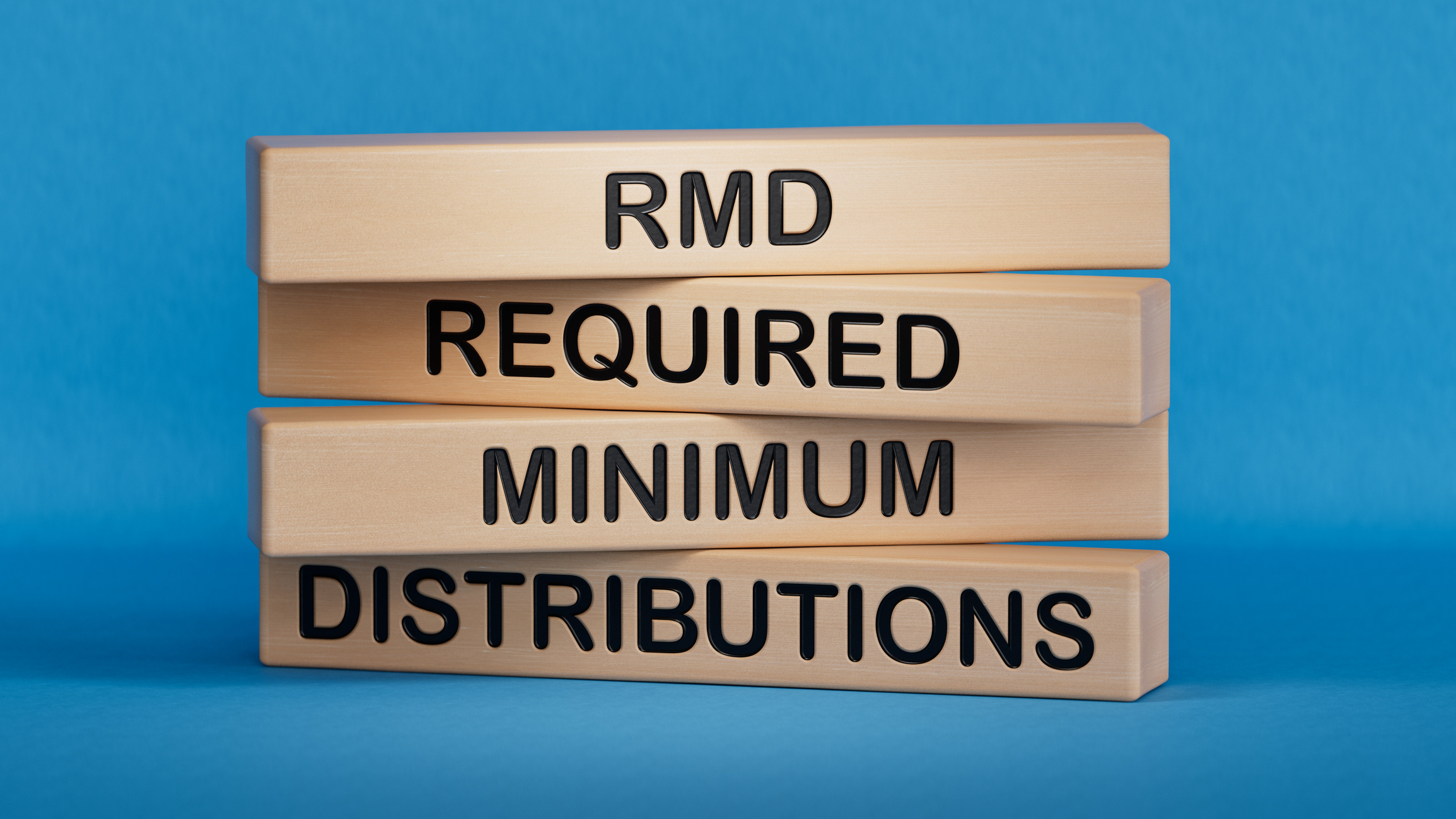Time for an IRA Distribution?
You must take a distribution this year, but you can skip it in 2009.

Profit and prosper with the best of Kiplinger's advice on investing, taxes, retirement, personal finance and much more. Delivered daily. Enter your email in the box and click Sign Me Up.
You are now subscribed
Your newsletter sign-up was successful
Want to add more newsletters?

Delivered daily
Kiplinger Today
Profit and prosper with the best of Kiplinger's advice on investing, taxes, retirement, personal finance and much more delivered daily. Smart money moves start here.

Sent five days a week
Kiplinger A Step Ahead
Get practical help to make better financial decisions in your everyday life, from spending to savings on top deals.

Delivered daily
Kiplinger Closing Bell
Get today's biggest financial and investing headlines delivered to your inbox every day the U.S. stock market is open.

Sent twice a week
Kiplinger Adviser Intel
Financial pros across the country share best practices and fresh tactics to preserve and grow your wealth.

Delivered weekly
Kiplinger Tax Tips
Trim your federal and state tax bills with practical tax-planning and tax-cutting strategies.

Sent twice a week
Kiplinger Retirement Tips
Your twice-a-week guide to planning and enjoying a financially secure and richly rewarding retirement

Sent bimonthly.
Kiplinger Adviser Angle
Insights for advisers, wealth managers and other financial professionals.

Sent twice a week
Kiplinger Investing Weekly
Your twice-a-week roundup of promising stocks, funds, companies and industries you should consider, ones you should avoid, and why.

Sent weekly for six weeks
Kiplinger Invest for Retirement
Your step-by-step six-part series on how to invest for retirement, from devising a successful strategy to exactly which investments to choose.
Many retirees who had watched their IRA balances shrivel during the last quarter of 2008 had hoped that Uncle Sam would allow them to skip their required minimum distribution this year so they wouldn't have to withdraw money from their shrunken accounts. But their prayers went unanswered. Although Congress agreed to suspend the mandatory distributions requirements for 2009, the Treasury Department decided it would be too confusing to change the rules for 2008 distributions so late in the year.
That means if you are 70 ½ or older, you must take a withdrawal from your traditional IRA or other retirement accounts by December 31. (Roth IRAs have no mandatory distribution requirements.) If you don't, you will owe a stiff penalty equal to half the amount you failed to withdraw.
Your minimum withdrawal is based on your account balance as of December 31, 2007, divided by your life expectancy as outlined in IRS Uniform Lifetime tables. For example, a 76-year-old with a $200,000 IRA balance in 2007 would be required to withdraw at least $9,091 by year end based on his 22-year life expectancy.
From just $107.88 $24.99 for Kiplinger Personal Finance
Become a smarter, better informed investor. Subscribe from just $107.88 $24.99, plus get up to 4 Special Issues

Sign up for Kiplinger’s Free Newsletters
Profit and prosper with the best of expert advice on investing, taxes, retirement, personal finance and more - straight to your e-mail.
Profit and prosper with the best of expert advice - straight to your e-mail.
You can always withdraw more than the minimum amount. You will owe taxes at your ordinary tax rate on all your retirement account withdrawals (except Roth IRA which are tax-free.)
If you don't need the money and are in a charitable mood, you can donate some or all of your required minimum distribution -- up to $100,000 -- directly to a charity tax free. But you can't use your tax-free IRA distribution to fund a donor-advised fund, a charitable remainder trust or a charitable gift annuity.
Although you can't double dip and claim a charitable deduction, the tax break may be even more valuable because you won't have to include your IRA distributions in your adjusted gross income. As a result, you could benefit from other tax breaks, such as reducing taxes on your Social Security benefits, boosting your deductible medical expenses, or avoiding the additional Medicare surcharge in future years -- all of which are tied to your adjusted gross income.
Profit and prosper with the best of Kiplinger's advice on investing, taxes, retirement, personal finance and much more. Delivered daily. Enter your email in the box and click Sign Me Up.

-
 The New Reality for Entertainment
The New Reality for EntertainmentThe Kiplinger Letter The entertainment industry is shifting as movie and TV companies face fierce competition, fight for attention and cope with artificial intelligence.
-
 Stocks Sink With Alphabet, Bitcoin: Stock Market Today
Stocks Sink With Alphabet, Bitcoin: Stock Market TodayA dismal round of jobs data did little to lift sentiment on Thursday.
-
 Betting on Super Bowl 2026? New IRS Tax Changes Could Cost You
Betting on Super Bowl 2026? New IRS Tax Changes Could Cost YouTaxable Income When Super Bowl LX hype fades, some fans may be surprised to learn that sports betting tax rules have shifted.
-
 3 Retirement Changes to Watch in 2026: Tax Edition
3 Retirement Changes to Watch in 2026: Tax EditionRetirement Taxes Between the Social Security "senior bonus" phaseout and changes to Roth tax rules, your 2026 retirement plan may need an update. Here's what to know.
-
 States That Tax Social Security Benefits in 2026
States That Tax Social Security Benefits in 2026Retirement Tax Not all retirees who live in states that tax Social Security benefits have to pay state income taxes. Will your benefits be taxed?
-
 Retirees in These 7 States Could Pay Less Property Taxes Next Year
Retirees in These 7 States Could Pay Less Property Taxes Next YearState Taxes Retirement property tax bills could be up to 65% cheaper for some older adults in 2026. Do you qualify?
-
 Social Security Benefits Quiz : Do You Know the IRS Tax Rules?
Social Security Benefits Quiz : Do You Know the IRS Tax Rules?Quiz Social Security benefits often come with confusing IRS tax rules that can trip up financially savvy retirees and near-retirees.
-
 6 Tax Reasons to Convert Your IRA to a Roth (and When You Shouldn't)
6 Tax Reasons to Convert Your IRA to a Roth (and When You Shouldn't)Retirement Taxes Here’s how converting your traditional retirement account to a Roth IRA can boost your nest egg — but avoid these costly scenarios.
-
 New RMD Rules: Can You Pass This Retirement Distributions Tax Quiz?
New RMD Rules: Can You Pass This Retirement Distributions Tax Quiz?Quiz Take our RMD quiz to test your retirement tax knowledge. Learn about RMD rules, IRS deadlines, and tax penalties that could shrink your savings.
-
 10 Retirement Tax Plan Moves to Make Before December 31
10 Retirement Tax Plan Moves to Make Before December 31Retirement Taxes Proactively reviewing your health coverage, RMDs and IRAs can lower retirement taxes in 2025 and 2026. Here’s how.
-
 Social Security Tax Limit Rises Again: Who Pays More in 2026?
Social Security Tax Limit Rises Again: Who Pays More in 2026?Payroll Taxes The Social Security Administration has announced significant changes affecting millions as we approach a new year.